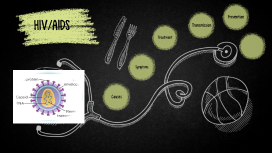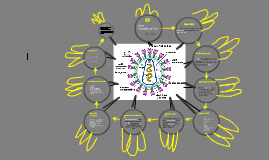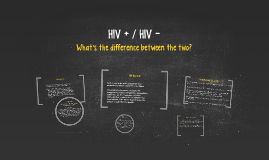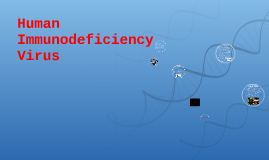HIV
Transcript: What is HIV? HIV (human immunodeficiency virus) is the virus that causes AIDS. This virus may be passed from one person to another when infected blood, semen, or vaginal secretions come in contact with an uninfected person's broken skin or mucous membranes. Infected pregnant women can pass HIV to their baby during pregnancy or delivery, as well as through breast-feeding. People with HIV have what is called HIV infection. Some of these people will develop AIDS as a result of their HIV infection. Symptoms: Rapid weight loss Dry cough Recurring fever or profuse night sweats Profound and unexplained fatigue Wollen lymph glands in the armpits, groin, or neck Diarrhea that lasts for more than a week White spots or unusual blemishes on the tongue, in the mouth, or in the throat Pneumonia Red, brown, pink, or purplish blotches on or under the skin or inside the mouth, nose, or eyelids Memory loss, depression, and other neurological disorders Some common symptoms of HIV that may take eight to ten years to appear HIV vs. AIDS TREATMENT: •No actual treatment is available to cure someone from AIDS •HIV can be treated with antiretroviral therapy, only to keep the number of CD4 cells above 300. •If antiretroviral therapy is done in the initial stage of the HIV disease, then the person can have more chances of survival. •Antiretroviral therapy reaches to only 42% of the HIV patients around the globe. •An early PCR treatment for HIV infected infant, can give the child a healthy normal life. •HIV positive pregnant woman can get good treatment during the early stages of her pregnancy, to give her child a healthy life. What tests are used in the diagnosis of HIV? AIDS is a disease •It is acquired by external means. It is not genetically transmitted •It deteriorates the immunity system, due to the presence of that virus •One with AIDS may have to go through a wide range of diseases and opportunistic infection. Therefore, it is a syndrome. •It occurs long after the person actually had acquired the HIV Blood– with oraquick test, Unigold test, conventional blood test Oral fluid– Orasure test, which tests the mucosal fluid from the gums of our teeth Urine- Even though it has less concentration of HIV antibodies, they can be occasionally detected through the ELISA method p24 antigen test CD4 and CD8 test- these count the number of these cells in your body. If it falls below 200, you are likely to be having HIV and HIV antibodies AIDS (cc) image by anemoneprojectors on Flickr HIV HIV is a virus •It attacks only the human •It creates a deficiency in the immunity system •HIVcannot reproduce by itself •It taakes over the human cell system and multiplies with the help of that. Human Immunodeficiency Virus (HIV)

















